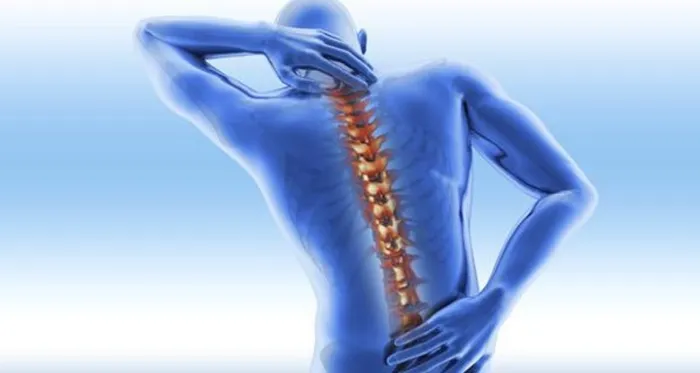Osteoporosis: expert tips on protecting your bone health

Both men and women can suffer from osteoporosis, which is also not the preserve of old age alone. File image
Health experts have warned that osteoporosis does not discriminate when it comes to age and gender.
The medical ailment is a condition where bone is lost at a faster rate than the body can replace it. However, awareness of individual risk and the factors influencing bone deterioration from a young age can help prevent this progressive disease.
In addition, both men and women can suffer from osteoporosis, which is not reserved for those in their old age only, Dr Rushdah Lariza Khan, a gynaecologist practising at Netcare Garden City Hospital, explained.
“There is a misconception that osteoporosis affects older women only but bone loss is something we all need to consider from a young age and take the appropriate steps to prevent it,” she said.
According to the National Osteoporosis Foundation of South Africa (NOFSA), one in five men are at risk of developing the condition in the country, although women are at greater risk with a one in three chance.
Meanwhile, Khan added that the hormones influence the rate at which the human body replaces bone tissue.
“People who have hormone-related disorders such as an overactive thyroid or parathyroid glands, disorders of the pituitary gland, reduced oestrogen or testosterone should discuss the implications for their bone health with a doctor and regularly screen for early signs of bone density loss,” she said.

Khan added that her experience with patients is that the hormone changes that happen at menopause directly affects bone mineral density.
“However, women in their mid-twenties can start showing signs of deterioration.
“Athletes or women who miss their menstrual periods for six months or longer from excessive dieting or exercise may also lose bone density,” Khan explained.
She added that after menopause, the levels of the female hormone oestrogen fall, leading to a rapid decrease in bone density.
“When women younger than 45 experience menopause or have a hysterectomy with removal of ovaries, this affects their oestrogen levels and, therefore, their risk of developing osteoporosis,” she said.
Khan also believes that hormone replacement therapy (HRT) is the most commonly prescribed treatment for managing the symptoms of menopause and prevention of osteoporosis, depending on the woman’s health profile.
And where other types of treatment are indicated, the patient is referred to a physician.
“It is so important for women to seek medical advice when they start menopause, especially if it is early menopause,” Khan stressed.
“Although there are both benefits and potential risks with any medication, gynaecologists are specially trained to prescribe the correct HRT for the individual patient, depending on their individual situation, while it is needed.”
“HRT is safe when correctly prescribed by a specialist, with yearly follow ups, including an annual mammogram.”
Khan clarified that HRT in the form of patches, gels or sprays does not increase the risk of developing blood clots, although the tablet form can.
“Recent studies indicate HRT does not increase the risk of heart disease or stroke, provided the therapy starts within 10 years of the last menstrual cycle and before the age of 60.
“Our bodies change as we get older, and women in their sixties should regularly discuss their need for HRT and review their treatment options with their gynaecologist or treating doctor to manage the potential risks, including osteoporosis, as appropriate for optimal healthy ageing,” she said.
Here are Khan’s seven tips for protecting your bone health:
Get enough calcium
Khan said that women should have 1 000mg daily, and increase to 1 200mg from the age of 51. “Men should have 1 000mg daily,” she added.
Vitamin D
The human body needs this important vitamin for bone strength, and Khan recommended supplements which may be required to achieve the recommended 600 international units (IU) of vitamin D per day, increased to 800 IU from age 71.
Protein
Khan explained that protein is the building blocks for healthy bones.
Exercise
Resistance training, such as lifting weights, using elastic bands and doing water exercises, as well as weight-bearing exercises such as walking, running, dancing, aerobics or tennis, for at least three times a week, is required for healthy bones.
Lifestyle adjustment
Khan recommended quitting smoking, limiting alcohol intake and maintaining a healthy weight for optimal bone health.
Hormone replacement therapies
She believes that women of a certain age can benefit from the appropriate use of hormone replacement therapies.
Individual risk assessment
It is recommended to have your individual risk assessed, especially if you have other comorbidities.
Related Topics: